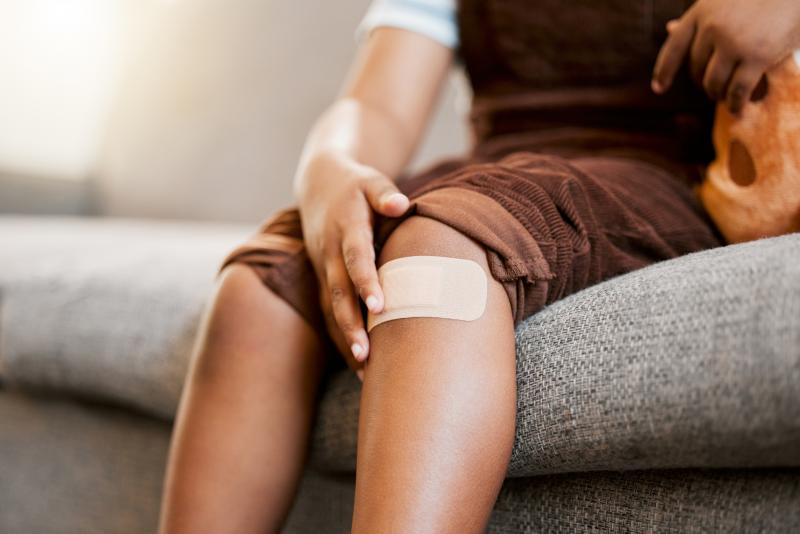Cuts, Scratches & Grazes
Cuts, Scratches & Grazes
How to care for cuts, scratches and grazes. If your child has a wound that won't stop bleeding, see your doctor or go to the emergency department.
Key points about cuts, scratches and grazes
- a clean cut or tear in the skin is called a laceration
- most lacerations are not deep and heal easily with self-care
- deeper lacerations may need stitches by a nurse or doctor
- a graze (or abrasion) is a scraping or rubbing away of the skin surface
- grazes are not deep and usually heal within 2 weeks with self-care
- if your child has very serious bleeding including spurting blood, or they feel faint or light-headed then call 111 within New Zealand straightaway (use the appropriate emergency number in other countries)
What should I do if my child has a cut or graze?
If your child has a cut or graze, follow these steps to help it heal well.
- wash your hands with soap and water before and after cleaning any wound
- if necessary use direct pressure to stop bleeding
- clean the wound with lukewarm tap water - use sterile saline solution if you have some in your first aid kit
- leave clean, loose flaps of skin in place to form a natural dressing
- apply antiseptic ointment (such as savlon or betadine) only if the wound is dirty – do not use for longer than 2 weeks
- cover with a non-stick dressing
- keep dry for 24 hours if possible during initial healing
- replace the dressing if it becomes dirty or wet
- check whether your child needs a tetanus injection - ring the GP practice if you are unsure
- a booster injection is recommended if it is more than 10 years since your child's last tetanus injection, or 5 years if the wound is dirty, contaminated or deep
When should I seek help for my child's cut or graze?
See your doctor or nurse if:
- you can't fully clean the wound
- the bleeding won't stop
- the wound is deep and the skin is gaping
If you have managed to clean and dress the wound, keep an eye on it and see your doctor if:
- your child has any new loss of feeling, numbness or inability to move the affected limb
- there is increased redness, swelling, pain or it becomes warm to touch
- red streaks develop
- there is a coloured or smelly discharge
- the wound has not healed after 2 weeks
Call Healthline on 0800 611 116 if you are unsure what you should do.
Check out the KidsHealth page for more information on how to stop skin infections
What is a puncture wound?
A puncture wound is when something penetrates layers of skin, such as a knife, nail or tooth. Bacteria can be carried to the tissue under the skin.
Puncture wounds usually close very quickly and need to be cleaned thoroughly to prevent infection.
What should I do if my child has a puncture wound?
If your child has a puncture wound, follow these steps to help it heal well.
- wash your hands with soap and water before and after cleaning the wound
- flush the wound with running tap water to remove all dirt
- check whether a tetanus injection is needed - call your GP practice if you are unsure
- a booster injection is recommended if it is more than 10 years since your child's last tetanus injection or 5 years if the wound is dirty, contaminated or deep
When should I seek help for my child's puncture wound?
See your family doctor or nurse if:
- there is something stuck in the puncture wound
- your child has any numbness or tingling below the puncture
If you have managed to clean and dress the wound, keep an eye on it and see your doctor if:
- your child has any new loss of feeling, numbness or inability to move the affected limb
- there is increased redness, swelling, discomfort or it becomes warm to touch
- red streaks develop
- there is a coloured or smelly discharge
- the wound has not healed after 2 weeks
Call Healthline on 0800 611 116 if you are unsure what you should do.
Check out the KidsHealth page for more information on how to stop skin infections
This page last reviewed 20 April 2023.
Do you have any feedback for KidsHealth?
If you have any feedback about the KidsHealth website, or have a suggestion for new content, please get in touch with us.
Email us now
